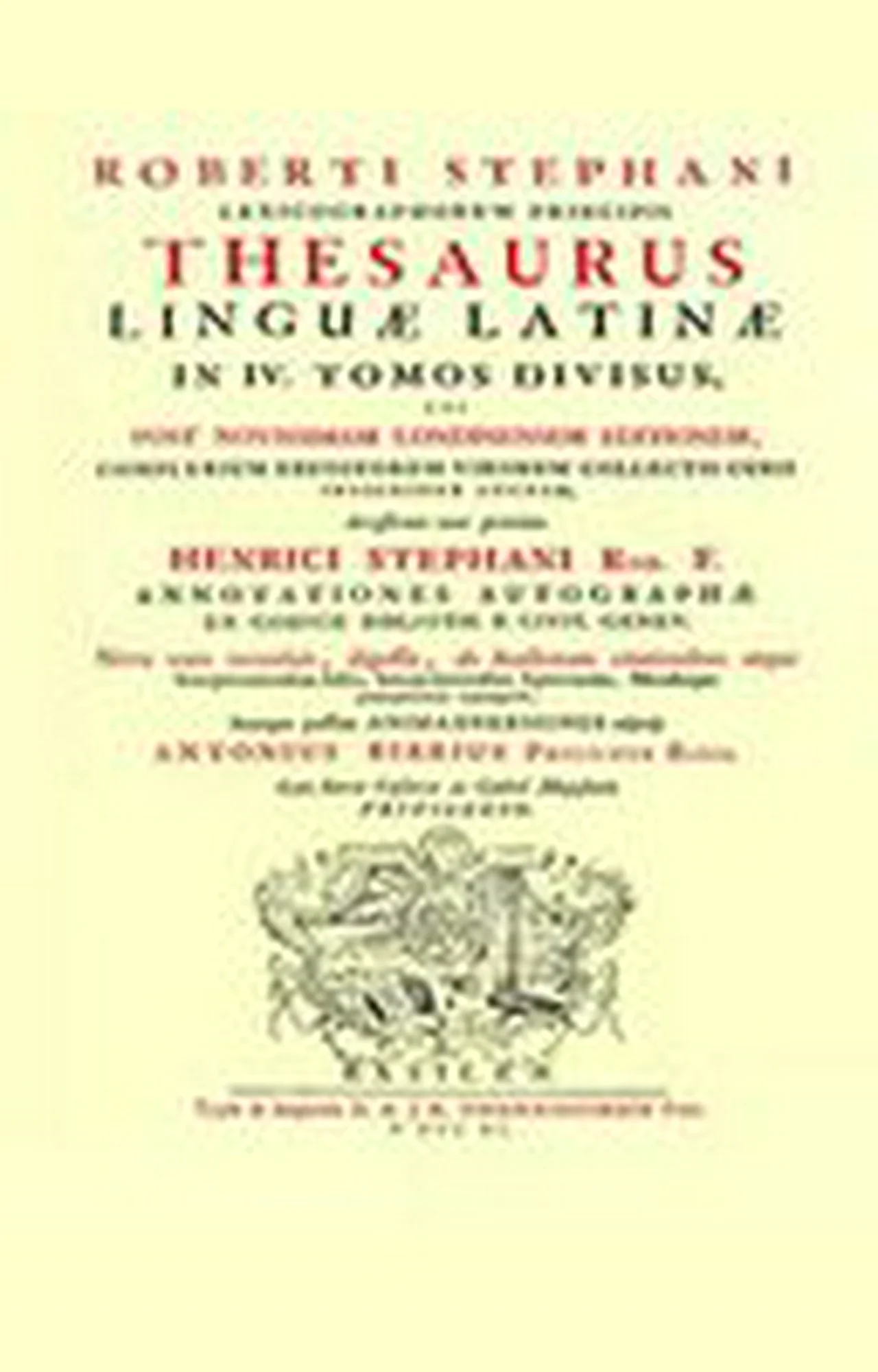Published By
Created On
14 Oct 2021 02:48:14 UTC
Transaction ID
Cost
Safe for Work
Free
Yes
Thesaurus Lingue Latinae, R. Estienne, 1740, vol 4, cleaned and OCR'd
TLL_MDZ_04
Thesaurus Lingue Latinae, R. Estienne, 1740, vol 4, cleaned and OCR'd
The original intent of 16th century lexicons was openly declared by Calvinists to be the education of the public at large to translate Greek and Latin so to read the Bible for themselves. Although slanted in this way, their work is both voluminous and thorough. Study of secular or even pagan literature was esteemed because it led to better understanding of Greek, and thus to better understanding of the scripture. Modern lexicons are based upon this earlier work, but contrary to modern advertising they do not supersede it. Corporations and special interest groups have indeed taken over classical studies, just like they have hijacked everything else in the modern age. Too often we think that Brill Publishing, the Perseus Project, the Oxford dictionaries, and even the Liddell-Scott-Jones lexicon are the "be all and end all" of classical or else biblical scholarship. But without knowledge of the lexicography of the past a distorted semantics of Greek language ensues. The future of classical studies should encompass both modern lexicography and that of the past, and therefore any classical scholar's skill set must entail critical comparison between the import of past scholarship and future realization.
This onus is upon us due to technical reasons, but also due to evolution of mind-set. To illustrate the technical side, entries for post, póst, and pòst in Thesaurus linguae Latinae of Robert Estienne (1573) clearly distinguish the import of these three disparate words. Genuine understanding of the full breadth of Latin as used by Henri Estienne in his Thesaurus Graecae Linguae requires knowledge of the diacritic markings that differentiate Latin sememes. However, post as well as the two other related yet distinct lexical entities, póst, and pòst, appear in later Latin lexicons (since the printing of Thesaurus linguae Latinae in 1740) under a single spelling, e.g. "post." Naturally, this causes confusion.
Beyond such technical reasons, however, one must consider that an era's world-view predisposes one to interpret language according to subtle changes of mind-set with which a reader has grown up . Slowly over time, humanity's outlook develops perspectives that are tendentious in ways inconceivable to those who lived prior. For example, despite authors of former days working at the cutting edge of classical studies, they labored prior to what would become the all-pervasive influence of modernist thinking typified by Charles Sanders Pierce and his philosophy of Logical Positivism. Without such prejudice, their writings therefore preserve much more of Greece's spirit of the age than what would come after. The mind-set prior to modernity could be characterized as artless, in that its perspective is unsullied by reductionism. The banal rendering of the word ὕπαρ as "reality" held second place to the more descriptive "waking dream."
Artlessness is not to be conflated with naïveté, however. Even in this post-modern era, practically all that is understood about the human psyche, about the way people behave in groups, about how they respond to influences good or bad, and much more depends on our knowledge of the classics. Even Freud's understanding of the subconscious/unconscious, so key to advertising and propaganda, is to be found embedded in Greek in the use of the middle voice. Truly our modern minds have strayed a long way from ancient Greece. It is not enough to compensate for this lack by merely discounting the tendentious modernism of intervening ages; the ancient mindset is just too different. By engaging with Greek and Latin in works written prior to modernism, though, something might yet shine through of the subtleties ancient authors instilled in their works.
Author
Content Type
Unspecified
application/pdf
Language
English
Open in LBRY
